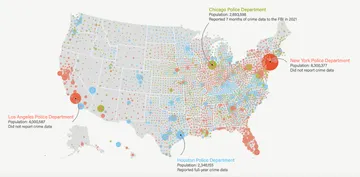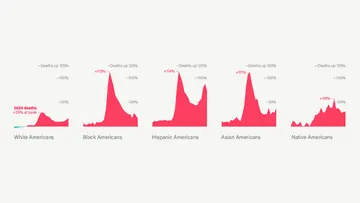For years, Mississippi’s local courts have avoided clarity about how they deliver the Constitution’s promise that poor criminal defendants will receive a defense attorney.
Now, the Mississippi Supreme Court says no more.
Writing for the court, Chief Justice Michael Randolph dispatched a letter in April to the state’s 23 circuit courts, giving them until Sept. 5 to disclose how they provide defendants who cannot afford a lawyer with their right to legal counsel.
Each court’s plan must be given to the state’s high court and posted online, according to the letter. Three have responded so far.
In Mississippi, a patchwork of local governments and courts funds and manages almost all public defense, but these systems largely operate out of sight. The state has long failed to evaluate or monitor how those local officials do the job that’s required of them.
But now, Mississippi civil rights lawyer Cliff Johnson said the high court’s action could pave the way for further reform by allowing defendants, attorneys and advocates alike to know how courts are handling their Sixth Amendment obligations to provide lawyers to indigent defendants.
“It’s only with that kind of transparency that we can hold people accountable,” Johnson said.
The chief justice’s letter follows previous reporting by The Marshall Project, the Northeast Mississippi Daily Journal and ProPublica, which found in 2023 that almost all courts in the state were ignoring a rule enacted in 2017 that required judges to develop public defense plans and submit them to the state Supreme Court.
The latest transparency crackdown by the high court comes alongside recent funding by legislators of a short-term program to boost public defense resources in one rural court district. It also follows a prior order from the high court requiring that indigent defendants always have a lawyer without any gaps in representation. Advocates and state officials say that these measures mark the most concrete steps taken in years toward improving the state’s public defense systems.
Most states have statewide funding for public defense, oversight of local public defense systems, or a combination.
Michigan, for example, delegates public defense to counties, and these local systems were, like Mississippi’s, long regarded as ineffective. However, beginning over a decade ago, the state developed minimum standards that counties had to meet and offered funding to comply with those standards.
But without oversight or incentives, Mississippi’s local systems vary widely, with defendants bearing the consequences.
Some counties, like Hinds in the capital region or Jackson on the Gulf Coast, have full-time public defender offices that represent indigent defendants early after arrest. But in other counties, reporting by The Marshall Project - Jackson, the Daily Journal and ProPublica found that defendants go without legal counsel for stretches of their cases, only to be assigned lawyers later. Over the years, evaluations by legal experts who have looked throughout the state have found much the same.
Faced with this tangled legal landscape and the long-known problems associated with it, the Mississippi Supreme Court in 2017 used its rule-making powers over local courts to require that those courts write public defense plans and submit them to the high court.
But by 2023, the news outlets found that only the 22nd Circuit District in rural southwest Mississippi had ever heeded that order, and only that year. Shortly after this reporting, two more court districts submitted plans: one from the 1st Circuit Court in Mississippi’s northeast corner and one from the 9th Circuit Court, bordering the Mississippi River and centered on Vicksburg. The state Supreme Court approved the plan submitted by the 1st Circuit Court district, but the plan from the 9th remains pending before the court.
Last December, Johnson, who runs the Mississippi office of the MacArthur Justice Center, a civil rights law firm, submitted a motion to the high court asking that it take up the transparency requirements again.
In April, the court agreed to a version of what Johnson had asked. Under the latest guidance, local courts will submit plans, but the Supreme Court won’t review or authorize those plans.
In response, two additional courts have provided plans: the 21st Circuit District, a rural district near the Jackson metro area, and the 15th Circuit Court District, near the Gulf Coast.
Alongside plans previously submitted in 2023, that means that five of the state’s 23 circuit districts now have public plans.
State Public Defender André de Gruy released a model public defense plan in 2023 for courts to consider. Of the plans submitted so far, he said the 15th Circuit Court’s plan is very close to ideal. The plan provides for the identification of indigent defendants after arrest and the possible representation of defendants by a lawyer at their very first appearance before a judge.
Other plans don’t so clearly call for the early appointment of counsel. That’s a longtime problem in Mississippi, one where the consequences can be especially steep for people facing felony charges.
It’s also a problem that has united differing ideological factions, with Russ Latino, a then-executive director at Empower Mississippi, a conservative think tank, playing a key role in urging the court to ban representation gaps.
Johnson, who worked with Latino on that issue, now hopes the forthcoming plans encourage an ongoing coalition of progressive and conservative legal reformers to push for change across the range of current public defense problems.
“This isn’t about a bunch of civil rights lawyers looking to play gotcha,” Johnson said. “It’s about exploring opportunities to work alongside courts.”

